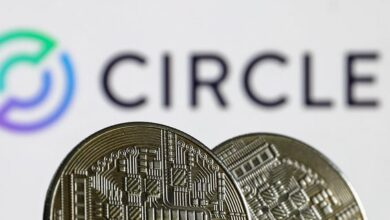Huobi MENA Seeks licenses from ADGM UAE and Bahrain Central Bank

UNLOCK recently interviewed the Co-Founder of Huobi MENA and EMEA Regional President Mr. Mohit Davar to talk about the crypto market situation in the region as well as Huobi’s recent expansions and acitivties.
According to Mr. Davar, Huobi is one of the leading digital token asset exchanges worldwide with volumes of trade that either put it first or second place depending on trading volumes. Huobi offers 250 pairs of crypto asset with 1.25 billion in trading volumes. According to Davar, “While the percentage of Huobi’s customers in MENA region is still less than 5% of its total global customer base, Huobi is working to grow this segment utilizing its offering and it presence.”
As such there has been a foray of activity in the region. Huobi expanded and opened offices in UAE, Gibraltar, Japan, Thailand, Turkey and Argentina. As Davar explains, “We believe you need to be close to your customers, and regulators. We believe regulation is good for the industry and we are licensed in UAE within DMCC (Dubai Mercentile Commodities Center) but we are also working to receive a license from ADGM and also probably one in Bahrain.” He adds, “Our current license in DMCC is an over the counter license not a fully-fledged exchange and that is why we are working with ADGM to apply so we can then be able to open accounts in banks and work as a principle broker. We are in final stages.” Huobi has also been in contact with Central Bank of Bahrain and as Davar states, “We have met with Central bank and we could be working with them.”
Although there have been many announcements regarding the launching of digital asset exchanges, Davar believes that the issue of liquidity of these exchanges is paramount. He explains, “We are launching Huobi Cloud as part of the Huobi Group and plan to provide white label exchange services in the MENA region.” Existing institutions include the Nigeria-based SaBi exchange, with about $100,000 worth of daily crypto trading volume, and the South African exchange HIZA, which is expected to go live in the fourth quarter. He adds, “These institutions are looking to leverage an international platform’s security resources and deeper liquidity, otherwise difficult to recreate on their own.” Huobi is currently recruiting in Nigeria and Egypt according to Davar.
Huobi Cloud has been in discussion as well with potential partner companies across 10 countries in the Middle East and Africa, hoping to launch two or three of them this year, according to Davar. He added, “Huobi offers exchange services via its API, which could be used for localized exchanges, or a white-labeled cloud service, which is much simpler than launching a fully localized exchange.”
Huobi hopes to attract institutional clients in the MENA region by offering them a fiat option. Already Huobi has an office in Turkey with four people on the ground according to Davar. When it announced its launch in Turkey is also announced its plan to roll out a fiat gateway that would increase access to more than 250 cryptocurrencies for local investors utilizing one of the biggest banks in the country. As Davar told UNLOCK, “cryptocurrency trading is not illegal in Turkey nor is it yet fully regulated however many people hold cryptocurrencies in the country.” Turkish users will be able to trade at a 50% discount with 0.1% transaction fees, and even lower transaction fees by holding Huobi Token (HT). Another program would open up for professional traders in Turkey to trade with low fees across Spot and Margin trades.
Huobi took the same steps when it announced its launch in Argentina. While users can currently purchase cryptocurrencies with Argentine Peso (ARS) via Huobi’s OTC service, Huobi Argentina will soon introduce a fiat gateway, estimated to launch around mid-October of this year. With the Argentine Peso (ARS) gateway, users will be able to easily purchase cryptocurrencies via credit card, wire transfer, and some of the most widely supported digital payment providers in the region such as Mercadopago.
Even more so Huobi recently announced its All Star VIP 6th Anniversary Fee Promotion’ to all professional tier traders as part of Huobi’s 6th Anniversary celebration. Key highlights include the Huobi All Star VIP Program, which targets high volume traders on competing platforms. To ensure this VIP segment is well catered for, Huobi recently upgraded its Key Clients Privilege Program (professional tier users automatically qualify for the privileges under this program). Depending on their VIP category, clients can enjoy 1-1 customer service by Huobi, receive larger trading and withdrawal limits, and even exclusive co-location services.
As for their recent partnership with CASHU to make accessing cryptocurrencies easier Davar states, “We are opening up the crypto market to some 3 million customers who use CASHU System by integrating Huobi API with their system. In Lebanon, as in other MENA countries, CASHU Card holders can purchase small amounts of crypto as CASHU applies its own compliance limits. CASHU users can now buy and sell Bitcoin (BTC), Ethereum (ETH), Ripple (XRP), Bitcoin Cash (BCH) and EOS (EOS) directly from CASHU’s mobile app. Users don’t need access to a bank account and can even pay in local currencies. Users on CASHU’s mobile app can make crypto transactions as easily and effortlessly as they would pay a bill or signing up for online services. Davar states, “We are utilizing partnerships such as these as we might not be able to open fiat channels across the entire GCC and MENA region and so partnerships such as these serve the crypto community greatly.”
While most of Huobi’s business today is in utility tokens Davar states, “We are exploring the regulatory environment for the listing of security tokens and looking for the best jurisdiction for license. We believe that STOs are clearly an attractive and easy way for companies to raise finance, but this will depend on regulatory framework as not all STOs are a credible way to raise capital.”





